Kevin Broughton is never short of ideas to keep his customers spending in his store. Sarah Britton takes a closer look
An entrepreneurial streak is a must when you run your own business, and Kevin Broughton certainly shows his, with plenty of neat ideas to give his Broughton’s News Day-Today store in Cleethorpes, Lincolnshire, an edge.
A couple of years ago, he applied to a local government organisation called E-Factor, which agreed to help fund his latest venture at the time, Broughton 2U - a website and home delivery service. “They paid 80% of all my advertising costs,” says Kevin. “It enabled me to do local leaflet distribution and design posters.”
A selection of the store’s products were listed on the new website and customers could simply ring up and place an order. Kevin tried hard to get the system off the ground, even teaming up with the neighbouring Chinese takeaway. “We built in a deal that if you ordered from the takeaway and from me, then you’d get a free portion of spare ribs and an M&M’s grab bag.”
But despite his best efforts, customers weren’t biting. “Although I was making up to 30 deliveries a week, by the time I’d paid for the extra staff to take orders in the back office it wasn’t profitable, so I made a decision to stop promoting it, and deliver just to my regulars.”
But just when Kevin was winding things down and accepting the service would be limited to a few elderly customers, he received a bolt from the blue that turned things around. “A children’s centre called Sure Start found my website and began making regular orders - things such as orange juice, fruit and baking ingredients. I started with one centre and now have three.”
Store profile: Broughton’s News
Size: 2,500sq ft
Opening hours: 6am-10pm, seven days a week
Staff: Four full time, five part time
Services: ATM, PayPoint, Health Lottery, food to go
Kevin is making a respectable £500-worth of sales a week from his home delivery business. He claims that the service is only possible because of Today’s Group delivered wholesaler D B Ramsden & Co, also known as Dee Bee. “I have six deliveries a week from Dee Bee. It’s a very important service to me and it’s second to none.”
He has found Dee Bee to be invaluable when sourcing wines. “Managing director Nick Ramsden has always looked after me and sells me wine at competitive prices,” he says.
Having access to reasonably priced wine has enabled Kevin to come up with a nifty way of promoting his wines by using a tiered pricing structure. “I offer two for £8, two for £9, two for £10, and two for £12 in red, white and rosé,” says Kevin. “People can mix and match different brands. I can’t guarantee they’ll get the same bottle next time they come in, but they’ll always get a good deal.”
He recently invested £5,000 in an open chiller for beers and wines, which has really helped sales to soar. “When you buy alcohol from Tesco, you take it home to chill. But when you buy it from me, you want it that night, so it has to be cold,” he says. “Having a larger range of cold drinks has really increased sales - they’re up 20% year on year.”
The new chiller has given him room to expand his wine selection, which now boasts 15 wines per price bracket.
On an average week, Kevin sells £3,000-worth of beers, wines and spirits a week, half of which is wine. He sources his wines either on promotion, or when they are being cleared by Dee Bee to make room for other products.
He explains that although he makes a smaller margin on wines than other products, the deal prompts people to spend more. “I work on a 16% margin on wines, while the store as a whole works on about 22%. But every time someone spends £10 on a wine deal, I’m making £1.60 profit (compared with 22% of a £6.29 single bottle, which is only £1.38). I sold 80 bottles one Saturday night and 95% of those were on deal.”
He claims that the deal ensures people feel they are getting a bargain because he is careful to use plenty of recognised brands. “I try to make sure it’s a wine people have heard of, such as Echo Falls, Hardy’s, Blossom Hill and Wolf Blass, so that they know they’re getting value for money. I haven’t got as big a range as Tesco, but customers tell me it’s cheaper. One customer comes from three miles away every week to buy wine.”
Kevin also has a strategic pricing structure for cigarettes, which enables him to get the best out of the category. “I stock pricemarked packs of economy lines, such as Richmond, for price-conscious customers, and for the rest I just have standard packs. With the more premium brands such as Marlboro, Silk Cut and B&H Gold, I premium price them. I’ll put a 10p premium on 10-packs and 15p on packs of 20. People who are brand loyal tend to be willing to spend the extra money.”
This means Kevin achieves a 9% margin across the category. “I used to be reluctant to put up prices, but as long as you’re not greedy and you offer a range of prices, it works.”
He is also encouraging those after snacks to spend more. “I’ve stopped selling standard Walkers bags and replaced them with grab bags,” he explains. “I’ve also expanded on multipacks and share packs as people want to share snacks when they’re watching The X-Factor. But I still offer smaller packs of cheaper crisps, such as Space Raiders, for the kids.”
It’s a similar story with confectionery where larger formats, such as share bags and blocks, are being given more shelf space. “I’ve increased my hanging bags and big blocks as I sell more £1 Cadbury Dairy Milk blocks than standard bars. It’s the same with single bags of Maltesers versus pouches. I make a smaller margin, but I’m getting £1 in my till instead of 65p and people are getting a fair offer.”
But although Kevin is very much on the ball with profit margins and pricing, one particular category left him feeling more than a little perplexed. As is the case with many neighbourhood stores, Kevin believed he was onto a winner with his vast greetings cards range. The store is an L-shape and Kevin thought that a five-metre run of cards in the blind spot was a good use of space due to their stonking 100% margin, and their consistent sales. “I didn’t think people would bother pinching them, and they seemed to sell well in seasonal periods.” However, when he monitored the category he discovered that sales were actually going down. “I realised I was losing money on cards,” he says. “On Father’s Day I made less than a fiver, even though I sold £300-worth of cards. It was a false economy because all I was doing was increasing my stock.”
Better all round
Upon realising his error, Kevin made the tough decision to write off £3,500-worth of sales, reducing the card section to a one-metre bay and consulting with Dee Bee to come up with a more efficient use of the space. “Dee Bee’s store development manager helped me to plan what to put there in place of cards. I upgraded my CCTV with two more cameras and I filled the area with crisps and snacks.”
Despite their reduced space, card sales are thriving at the store and Kevin is now able to take advantage of the cross-category merchandising of drinks and crisps. “Now that soft drinks are next to snacks, people tend to pick up both for a night in,” he says. “We also have 150 new lines, including more varieties of cordial, soda water and tonics, so that’s really helping us to add more sales.”
Any retailer will tell you that you can’t get it right all the time. But by adopting shrewd pricing strategies, and systematically monitoring each product category, Kevin has ensured that his business keeps coming up trumps. ■





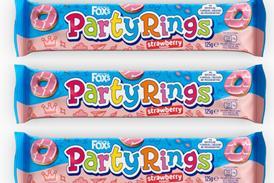
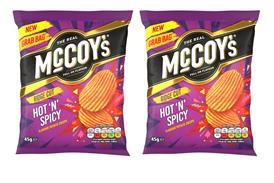
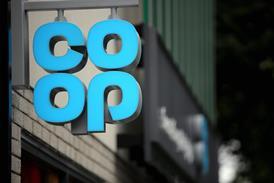

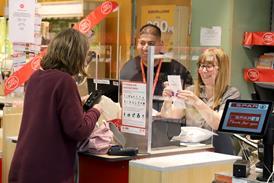

![WG-4003[58]](https://d2dyh47stel7w4.cloudfront.net/Pictures/274x183/4/5/1/353451_wg400358_6083.jpg)




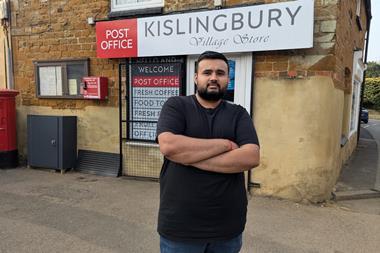
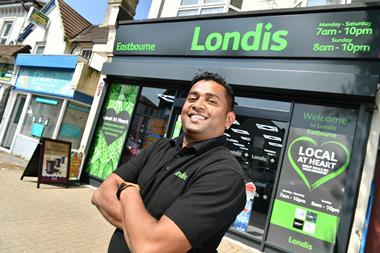
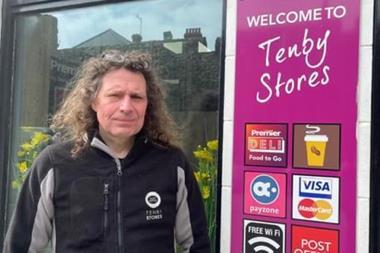
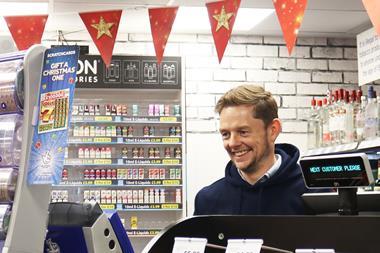
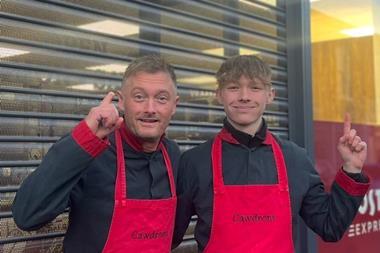
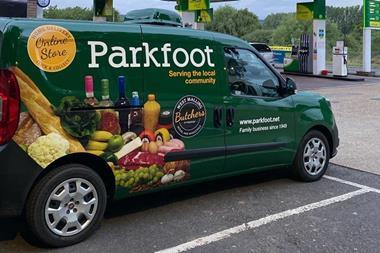


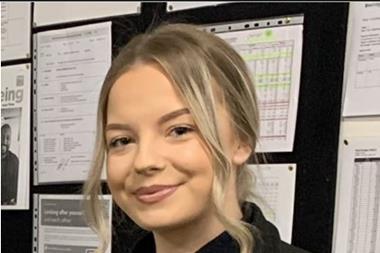
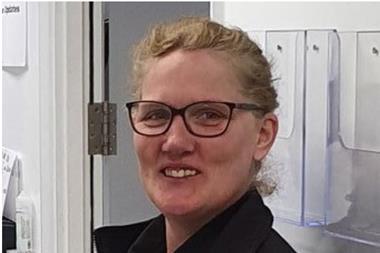
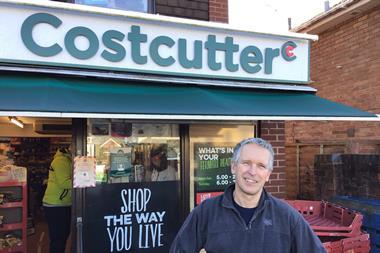
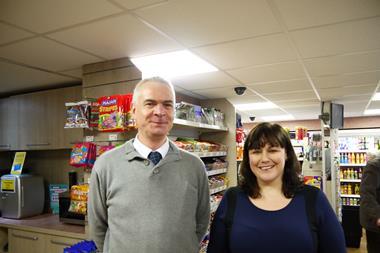
No comments yet